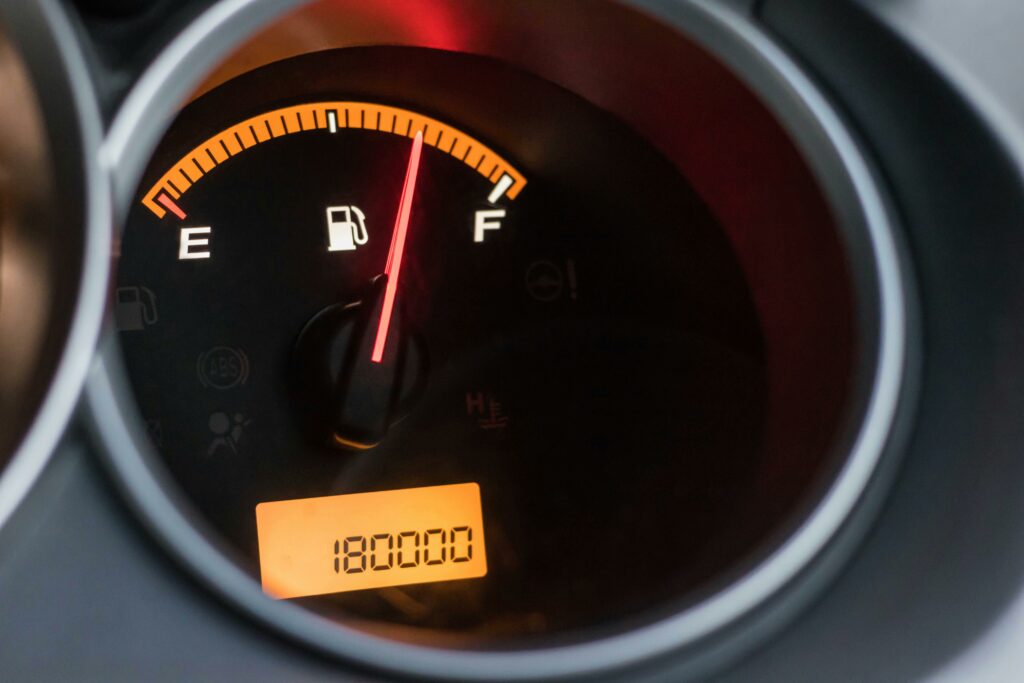Given the current trend of escalating fuel prices and a growing emphasis on environmental preservation, it has become increasingly imperative for drivers to boost the fuel efficiency of their vehicles.
Thankfully, a multitude of enhancements and alterations are at your disposal to optimize your car’s performance in terms of fuel consumption, thereby playing a vital role in curbing your carbon footprint.
Throughout this comprehensive post, we will look at a variety of practical and proven upgrades that promise to not only boost your vehicle’s fuel efficiency but also contribute significantly towards lessening the impact on the environment.
Tire Maintenance and Upgrades
a. Proper Inflation: It is crucial to prioritize the maintenance of correct tire pressure levels as this simple action can lead to noteworthy enhancements in fuel efficiency. By ensuring that your tires are consistently inflated to the levels recommended by the manufacturer, you can effectively minimize rolling resistance and enhance traction on various road surfaces. Make it a habit to check your tire pressure consistently and adjust it according to the manufacturer’s specified levels to ensure optimum performance and safety.
b. Low Rolling Resistance Tires: As you contemplate ways to further improve your vehicle’s efficiency, one option worth considering is upgrading to low rolling resistance tires. These specialized tires are crafted to reduce friction significantly, resulting in enhanced fuel economy. Through their ability to minimize energy loss, particularly evident during extended highway driving, low rolling resistance tires can contribute significantly to overall fuel efficiency and cost savings.
Source: Consumer Reports – “Low Rolling Resistance Tires Can Save Gas, Study Finds” Link: https://www.consumerreports.org/cro/news/2013/07/low-rolling-resistance-tires-can-save-gas-study-finds/index.htm
Aerodynamic Enhancements
a. Wind Deflectors: Installing wind deflectors or other aerodynamic accessories on your vehicle can be a smart way to minimize drag, enhance airflow, and ultimately boost fuel efficiency. These modifications prove especially advantageous for trucks and SUVs, as these vehicle types typically face greater aerodynamic resistance. By optimizing the aerodynamics with wind deflectors, you can maximize the vehicle’s performance while also saving on fuel costs in the long run.
b. Roof Racks Removal: When you take the proactive step of removing roof racks and cargo carriers that are not in use, you effectively reduce the drag coefficient and improve the overall fuel economy of your vehicle, especially when traveling at higher speeds. By eliminating unnecessary aerodynamic obstacles, you are streamlining your vehicle’s performance and ensuring that you get the most out of each fuel tank, ultimately leading to savings and a more efficient driving experience.
Source: U.S. Department of Energy – “Improving Aerodynamics to Boost Fuel Economy” Link: https://www.energy.gov/eere/vehicles/improving-aerodynamics-boost-fuel-economy
Engine Tune-Up and Maintenance
a. Regular Maintenance: To ensure your engine operates at its peak performance levels and prolong its lifespan, it is crucial to adhere to a strict schedule of regular maintenance activities. These activities involve more than just changing oil, replacing air filters, and inspecting spark plugs; they also include monitoring coolant levels, checking transmission fluid, and assessing belt and hose conditions. By diligently attending to all these maintenance tasks, you can maximize fuel combustion efficiency, reduce the risk of breakdowns, and enhance overall engine performance and efficiency.
b. Engine Tuning: Enhancing your vehicle’s performance and efficiency goes beyond routine maintenance; consider investing in engine tuning services or performance upgrades. These specialized services focus to boost fuel delivery systems, adjusting ignition timing, and fine-tuning the air-fuel mixture. By customizing these critical engine parameters, you can unlock enhanced efficiency, power output, and responsiveness from your engine. A well-tuned engine not only improves overall driving experience but also contributes to fuel savings and reduces harmful emissions, making it a worthwhile investment for any vehicle owner seeking peak performance.
Source: Car and Driver – “Improve Your Car’s Fuel Economy with These Engine Tuning Tips” Link: https://www.caranddriver.com/how-to/a32868776/engine-tuning-tips/
Lightweight Components
a. Weight Reduction: One effective strategy to enhance your vehicle’s performance is through weight reduction. By eliminating unnecessary items and switching to lighter materials like aluminum alloy wheels or carbon fiber body panels, you can significantly decrease the overall weight of your vehicle. This reduction in weight not only contributes to improved fuel efficiency but also enhances handling and agility, making your driving experience more enjoyable.
b. Fuel-Efficient Materials: Another key aspect to consider when upgrading your vehicle is the choice of fuel-efficient materials. Opting for components made from lightweight materials like composite materials or lightweight exhaust systems can help maintain performance standards while reducing the overall weight of your vehicle. By selecting these fuel-efficient materials, you can achieve a balance between efficiency and performance, ensuring that your vehicle runs smoothly and economically.
Source: Green Car Reports – “Weight Reduction: The Key to Better Fuel Economy” Link: https://www.greencarreports.com/news/1083951_weight-reduction-the-key-to-better-fuel-economy
Conclusion
By implementing various fuel-efficient upgrades and modifications, you can significantly enhance the overall efficiency of your vehicle, thereby not only saving a considerable amount of money on fuel costs but also making a tangible positive impact on the environment. Additionally, it is highly advisable to seek guidance and expertise from automotive professionals to assist you in selecting the most suitable upgrades tailored to your specific driving patterns and individual vehicle requirements.

